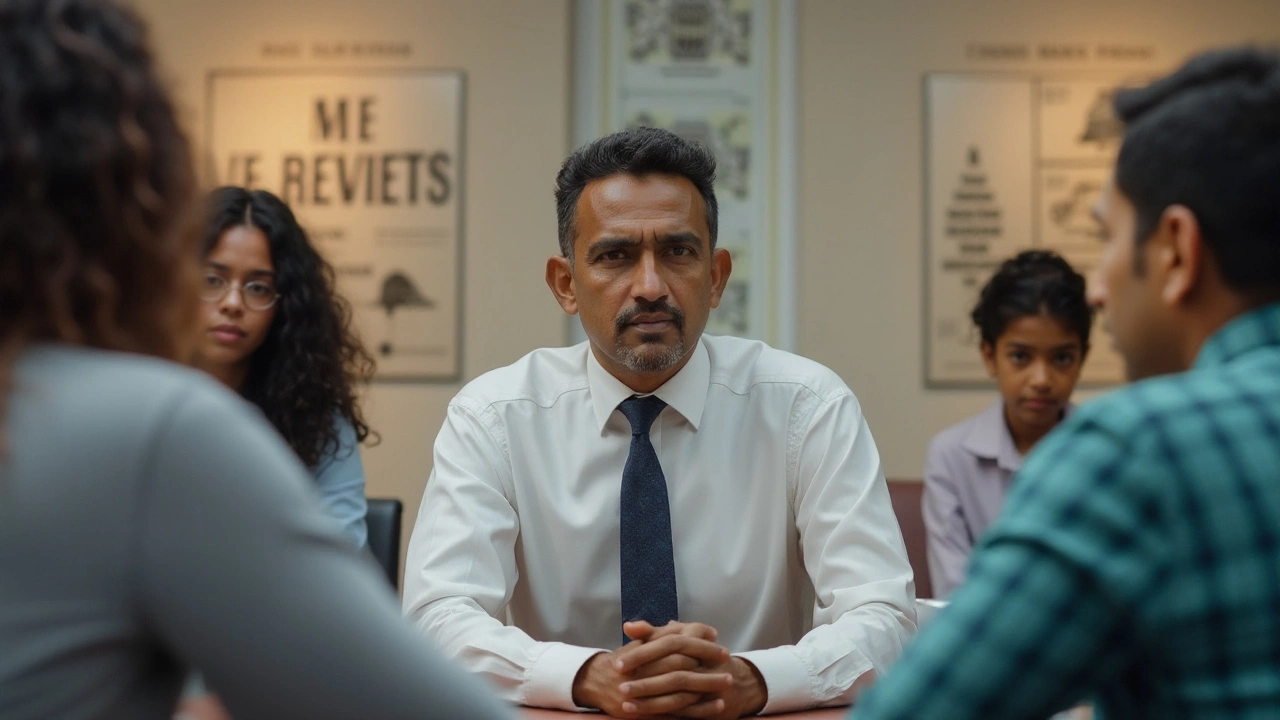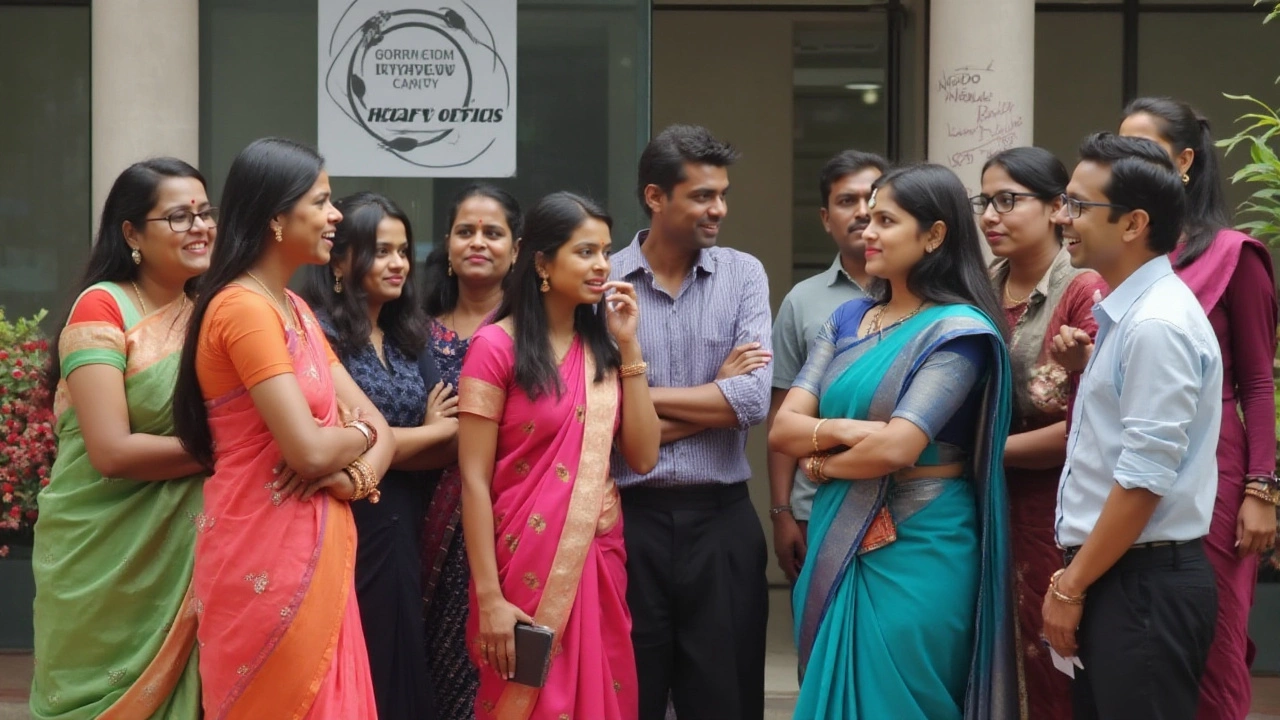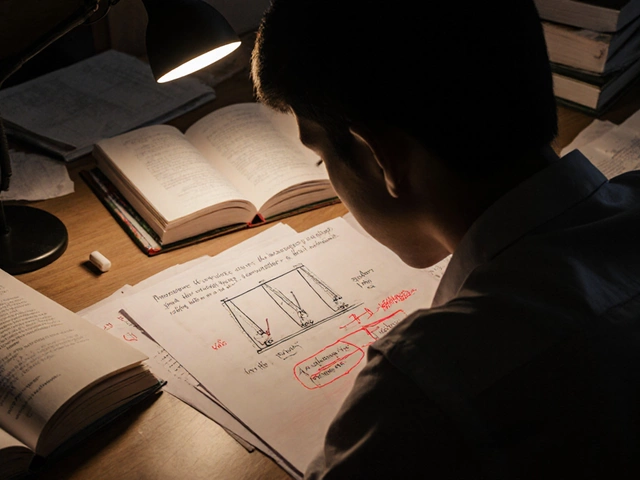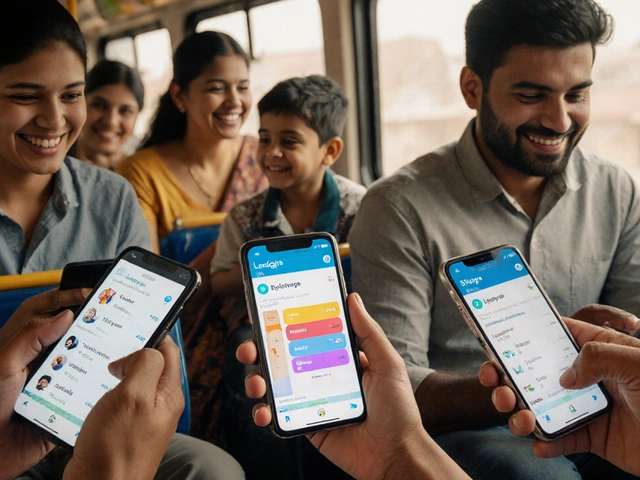Applying for a government job can often feel like navigating a labyrinth, especially when it comes to the interview stages. With numerous candidates vying for the same position, the competition is stiff and the process, at times, can be complex. To ensure the best match for the position, government roles frequently require a series of interviews. Each step is designed to assess various skills and competencies essential for public service.
From the initial phone screening to in-person panels, each interview type serves a specific purpose and comes with its own set of challenges. Understanding what to expect can make a significant difference in how you prepare and perform. In this article, discover the secrets to successfully navigating these interviews, learn how to anticipate questions, and find out what it takes to make a favorable impression.
- Understanding the Government Hiring Process
- Types of Interviews in Government Jobs
- What to Expect in Each Interview Stage
- Preparing for Common Interview Questions
- Tips for Excelling in Panel Interviews
- The Final Steps: Post-Interview Etiquette
Understanding the Government Hiring Process
Embarking on a journey to secure a role within the public sector is a commitment to a career that promises both stability and the opportunity to contribute to your community. The process begins way before you set foot in an interview room. Grasping the nuances of the government hiring process is vital. It typically begins with a clear understanding of the intricacies involved—from the application to the interview stages. Each step in the application process serves as a building block towards landing a position. Before you even begin thinking about interviews, ensure all your documents are in place; resumes and cover letters tailored to reflect your understanding of the role's requirements are imperative. Be prepared to fill out online applications, which often require more information than the typical private sector job application. They may ask for past salaries, previous supervisors' contact details, and extensive employment history.
The government hiring process is driven by merit and transparency principles, aiming to select candidates who best fit the job specifications. Here is where things get methodical. After the initial application, candidates might need to undergo a series of assessments designed to filter out those who meet the baseline qualifications. Many positions under the umbrella of government jobs require standardized tests to screen applicants—particularly in technical or specialized roles. These tests measure your knowledge, skills, and abilities related to the specific job category. Leverage this stage to refine your understanding of what's expected by studying past test papers and engaging in mock exams.
The Role of Structured Interviews
Structured interviews are a cornerstone in the hiring process for government jobs. Unlike traditional interviews, they follow a scripted set of questions derived from job specifications, ensuring all interviews are conducted equitably. This process not only enhances fairness but also makes it easier to compare candidates based on consistent criteria. During these interviews, questions often relate directly to hypothetical situations or past experiences, allowing candidates to showcase their intrinsic problem-solving skills and aptitude for public service. An interesting fact reported by the Office of Personnel Management says, "Structured interviews improve the quality of hire by up to 62% compared to unstructured ones."The culmination of the hiring process in most cases is a panel interview, which can seem daunting. This round typically involves several interviewers, each representing different aspects of the job role or the department's functions. Aligning your conversation to address the concerns and interests of each panel member could be your ticket to success. Learning to understand and navigate these interviews comes with practice and preparation. As you ready yourself, remember that past performance metrics, relevant experience, and technical competencies matter immensely.
The path to a government job may seem arduous, but understanding this hiring labyrinth does offer a sense of direction and purpose. As long as you remain prepared and informed, the journey could be immensely rewarding, not just for you but for the greater public good as well.
Types of Interviews in Government Jobs
When pursuing a position within the public sector, it's vital to become acquainted with the varied types of interview processes that might be encountered. Each government job interview serves a unique purpose, ensuring that only the most suitable candidates are selected for these significant roles. A successful strategy for candidates is to prepare for multiple formats, each with its own nuances and expectations. Commonly, candidates might face one-on-one interviews, panel interviews, and sometimes group interviews. Understanding the distinct characteristics of these different formats is essential for showcasing one's abilities effectively.
Let's explore the one-on-one interview, where the candidate typically interacts with a single interviewer—quite often a hiring manager or a representative from human resources. This setup allows for a more personable and conversational dialogue, enabling candidates to create a strong rapport with the interviewer. Here, candidates should emphasize past professional experiences that align with the job's responsibilities. It's important to remain succinct yet detailed, ensuring each response highlights one's career achievements and personal skills. This is an opportunity to provide specific examples that underscore eligibility for the role. This approach not only establishes credibility but also indicates forward-thinking, a trait highly valued in public service sectors.
Another common format is the panel interview, which can be both challenging and rewarding. In this scenario, candidates are questioned by several interviewers simultaneously. Each interviewer may represent a different department or interest within the organization. The dynamic nature of a panel interview demands readiness; candidates should be prepared to address diverse questions spanning a wide scope of topics. Successfully navigating this type involves maintaining eye contact and connecting with each panel member in turn. It's essential to address each question clearly and confidently, ensuring all responses are anchored in professional experience and substantive knowledge. As noted by career experts, "The key to succeeding in a panel interview is to treat it as a conversation where you can express both your qualifications and your enthusiasm for public service."
Sometimes, candidates may also be asked to participate in group interviews. In this setup, multiple candidates are simultaneously assessed in the same room. Often these sessions involve role-playing exercises or situational response tasks. Such formats help evaluate an individual’s compatibility in a team setting, as well as the ability to collaborate and communicate with fellow candidates. Employer attention tends to focus on how each person distinguishes themselves while working in a group, so candidates should aim to be collaborative, clearly articulate their thoughts, and demonstrate leadership when appropriate.
In some instances, rigorous technical assessments may follow the interview process, designed to assess specific skills based on the job scope. Such assessments are common in technology, finance, or research-focused roles, where being adept at particular tasks is non-negotiable. The nature of these assessments may vary, but a common element is the expectation of accuracy and precision. Candidates should anticipate this possibility and rigorously prepare by refreshing technical knowledge pertinent to the role they're pursuing. This holistic understanding of the public sector interview landscape ensures candidates approach each stage with confidence and a strategy tailored to the unique demands of government jobs.
A successful interview outcome not only depends on the ability to respond effectively to questions but also on understanding the unique characteristics of each interview format. Being prepared for these differences can lead to a more favorable impression and a greater likelihood of securing a position within the revered ranks of government service.

What to Expect in Each Interview Stage
For government job seekers, understanding the nature of each interview stage can make the journey less daunting. Typically, the process begins with a preliminary round, often referred to as the screening interview. This can be conducted over the phone or through video calls, focusing on verifying the basic qualifications and relevant experiences of the applicant. It's about ensuring that the candidate has met the minimum criteria required for the position. During this stage, it's common for interviewers to ask about your educational background and pertinent work experience. They might also be interested in your motivation for seeking a role in the public sector. This stage is typically brief but sets the tone for your suitability for the role.
Moving on to the next phase, candidates often face a structured interview, which typically involves a set of pre-determined questions that focus on past behavior and situational judgment. This stage aims to gauge your ability to handle similar situations that may arise in your new role. For example, you might be asked to describe a time when you had to deal with an irate member of the public or effectively manage conflicting priorities in a previous job. Your answers should reflect your decision-making skills, integrity, and commitment to public service values. Interviewers look for detailed examples rather than theoretical or abstract responses.
The penultimate stage, frequently referred to as the panel interview, demands robust preparation. Here, a panel typically consisting of three to five people from various departments will assess your performance. These interviews can be intimidating due to the number of people present and the diverse range of questions that can be posed. It's designed to simulate the kind of teamwork and cross-departmental cooperation that is essential in many government roles. It's important to remain calm and composed, addressing each panel member when responding. The key here is to demonstrate not just your technical abilities but also your capacity to thrive in a collaborative environment.
Final Interview Round
The final interview is the stage where stakes are highest. This interview is often conducted by the hiring manager or someone even more senior. It's an opportunity for decision-makers to assess your cultural fit within the team and your potential to contribute significantly to the department's goals. You may encounter open-ended questions such as 'Where do you see yourself in five years?' or 'How do you handle feedback?'. Your responses should be genuine, reflecting both your ambitions and your willingness to grow within the role. Public sector positions can be demanding, requiring flexibility and resilience, so illustrating these traits can go a long way in securing the job.
According to the U.S. Office of Personnel Management, “Effective government agencies require employees who not only have the right skills, but also exhibit the right fit of institutional missions and departmental priorities.”
Among these processes, it's crucial to remain patient and steady, as government job interviews can sometimes drag over weeks or even months. Proactive follow-ups and thank-notes can be good gestures, reflecting your enthusiasm and professionalism. Remember that each stage not only evaluates your potential as an employee but also provides a unique opportunity to better understand the role you're aiming for and the impact you can have in public service.
Preparing for Common Interview Questions
When tackling the rigors of government job interviews, preparation is your secret weapon. These positions demand not just technical prowess but also alignment with public service values. Preparation starts with understanding what interviewers are looking for. The questions often aim to evaluate not only your capabilities but also your integrity and commitment to serving the public. Hence, it's paramount to reflect on your personal values and how they resonate with those of the organization you wish to join.
One frequent type of question you'll encounter is behavioral. These questions revolve around past experiences and how they've shaped your professional conduct. Employers want to see how you've previously handled challenging situations, as this can be an indicator of future performance. To tackle these, the STAR method (Situation, Task, Action, Result) can be your guiding framework. When answering, illustrate the Situation, explain the Task at hand, describe the Actions you took, and conclude with the Results. This structure not only provides clarity but also highlights your critical thinking process effectively.
“Success is where preparation and opportunity meet.” – Bobby Unser
Technical questions are another component you should brace yourself for. These questions will test your subject knowledge and problem-solving abilities. The specificity of these questions will depend on the role you’re applying for. Delve into the job description to pinpoint key areas of focus and review the relevant materials thoroughly. Practice with sample questions where possible, and don't shy away from engaging a peer to conduct mock interviews. This practice can help refine your answers and make you feel more at ease when you're on the spot.
The interviews for public sector roles often venture into ethical inquiries, examining your decision-making skills in morally ambiguous situations. Here, interviewers aren't just fishing for the 'right' answer, but more for a thoughtful rationale behind your decisions. Emphasize your honesty and transparency, and be candid in discussing any lessons learned from past mistakes. It's this introspection that often sets candidates apart in the eyes of the panel.
Common Interview Questions
- Describe a challenging project you worked on. What was your role?
- Give an example of a time when you had to make a difficult decision. How did you approach it?
- How do you prioritize multiple deadlines?
- Explain a situation where you encountered a conflict and how you resolved it.
For each question, take the time to script your answers, ensuring they're aligned with the specific competencies required for government roles. By anticipating these questions and knowing how to respond thoughtfully, you greatly enhance your chances of making a lasting impression in the extensive interview process.

Tips for Excelling in Panel Interviews
Panel interviews are a common component in the hiring process for government jobs. Unlike one-on-one sessions, a panel interview typically involves multiple interviewers, each assessing your skills and fit for the role from different perspectives. These sessions can be intimidating due to the number of people involved, but with the right preparation, you can navigate them confidently. Before the interview, research the panelists; knowing their roles and interests can help mold your responses more effectively. One of the key advantages of understanding who will be present is the ability to tailor your answers to align with their particular fields of interest.
Preparation is key, and rehearsing your responses to common questions can make a remarkable difference. This doesn't mean memorizing answers verbatim, but rather being comfortable with how you convey your experiences and skills. Practicing in front of a mirror or with a trusted friend can simulate the pressure of the panel and improve your confidence. In the interview room, maintain eye contact with each panelist, which demonstrates confidence and engages everyone. It's crucial to listen carefully to each question, and take a moment to think before answering. This shows you are cultivating a well-thought-out response rather than rushing.
It's worth noting that panel interviews are not just about conducting a cross-examination of your qualifications. They are an opportunity for you to gauge what working with the team might be like. Be prepared to showcase your enthusiasm and genuine interest in contributing to their projects. A respectful and positive attitude can go a long way in making a lasting impression. During the exchange, don’t hesitate to ask relevant questions. This displays your understanding of the role and your eagerness to be an active participant. According to a study by Staffing Advisors, 86% of panelists consider candidate questions as insightful and reflective of their seriousness for the position.
After each response, try to scan the reactions around the room; non-verbal cues can provide immediate feedback. This technique helps you adjust your communication style on the spot. Given the collaborative nature of public sector roles, demonstrating your teamwork skills and adaptability is essential. Highlight past experiences that show your ability to work well in a team and how you have positively influenced outcomes or resolved conflicts effectively.
"The best way to succeed in any panel interview is to turn it into a dialogue rather than treating it as an interrogation." - CareerBuilderThis quote underscores the importance of seeing the interview process as a two-way street. It's a chance for both parties to engage in a meaningful conversation rather than a mere question-and-answer session. Feeling comfortable and owning your role within the interview can shift the dynamic and often make it less stressful.
Lastly, remember the importance of follow-up. Sending a thank-you note to each participant can reinforce their positive impressions of you. Mention specifics from the interview to remind them of your interactions. This small but sincere gesture can improve your chances significantly amidst the strong competition typical in government recruitment. Overall, maintaining professionalism and using these approaches will guide you toward performing exceptionally well in your panel interview endeavors.
The Final Steps: Post-Interview Etiquette
Once you've successfully navigated the labyrinth of government job interviews, the final stage of the process begins: exemplifying outstanding post-interview etiquette. Perhaps the most crucial aspect of sealing the deal lies in the follow-up. A well-crafted thank you email to the interviewers not only expresses gratitude but also reinforces your interest in the position and keeps you front of mind. Aim to send this note within 24 hours to ensure maximum impact. It should be concise yet sincere, touching upon points discussed during the interview and reiterating your enthusiasm for the opportunity.
Moreover, personalizing your follow-up messages is imperative. If you were interviewed by a panel, ensure you acknowledge each participant individually and tailor your message to reflect interactions or topics specific to each of them. This genuine, personalized approach helps in building rapport and showcases attention to detail—a desirable trait in any public sector role.
While awaiting a response can be anxiety-inducing, it's essential to maintain professionalism. If the hiring timeline was discussed in the interview, take note of it and avoid unnecessary follow-ups until the stated period has lapsed. If more time passes without a word, a polite inquiry about the status of your application is acceptable. Such follow-ups should be respectful, demonstrating your interest while acknowledging their busy schedules.
Networking doesn’t stop just because the interview has concluded. Leveraging professional platforms such as LinkedIn can help you stay connected. Sending a connection request to your interviewers with a personalized note can be a strategic move to keep communication lines open. This subtle reminder of your interest might just position you advantageously within the candidate pool.
In today's digital era, monitor your online persona as hiring teams often review social media profiles. Ensure your accounts present you as someone who aligns with the values and integrity expected within the public sector. This is particularly vital for government job roles, where character and reputation hold considerable weight.
Despite the long and grueling process of landing a government position, patience remains a virtue. Government hiring can seem to move at a glacial pace due to thorough vetting procedures, budgetary constraints, or simply bureaucratic due diligence. As a candidate, these delays can be frustrating, but understanding the precise nature of these processes can reduce anxiety. According to the Office of Personnel Management in the U.S., the average hiring time for a federal position is about 98 days. This extended period reflects the immense responsibility vested in these roles.
"Etiquette means behaving yourself a little better than is absolutely essential." - Will Cuppy
By adhering to suggested etiquette steps, you're not just bolstering your chances of success but also reflecting the decorum synonymous with serving the public. These final steps, subtle as they may seem, play a defining role in shaping the impression you leave on potential employers.




